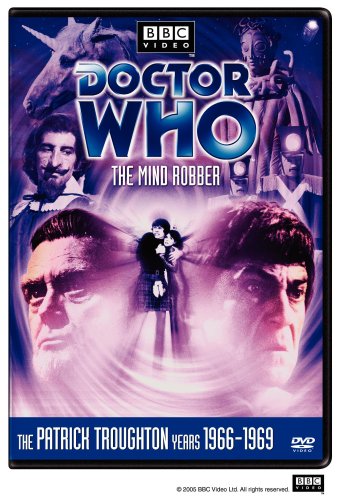 |
| Doctor Who-The Mind Robber |
While sinking in a lava flow the doctor uses the TARDIS's emergency escape system to get himself,Jamie and Zoe out of danger. This pulls the TARDIS out of time and space all together and into a world where imagery,either fact or fiction from ones own mind could become reality. And even be used against them. There are friends such as Gulliver and a adversaries such as giant robots that come from no ones imagination. These robots presence lead the trio through a maze of fictional imagery intended to fool them,only to find it's all being run by a super computer who abducted a human from 20'th century England to do it's bidding with his vast writing skills. In fact it wants to use the doctor,due to his immortality for the same purposes. After reversing this computers attempts to manipulate him and his two companions,the entire process is reversed and time and space are restored to normal.
Most stories on Doctor Who or most other shows over a clear bell shaped curve to them where one knows exactly what's happening. In this you never do. The imagery,from the TARDIS console flying through an ebony oblivion with Zoe and Jamie laying atop it to characters being randomly transformed into faceless cardboard cutouts is compelling. Especially for this period of the show. Also there's an excellent implied message here. Dealing with a master computer who literally exercises it's ability to transform fact to fiction and vice versa,not only has the doctor met a match in terms of level of control but it calls to mind humans real life relationship with fiction. And that includes Doctor Who. Part of that implication is that the printed word,in a literal and figurative sense,can be used to enact great good or enormous turmoil to even one person alone. And that involves understanding the responsibility that comes from understanding the power of the human mind.
No comments:
Post a Comment